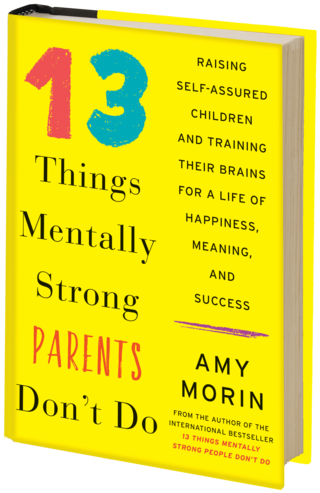Resilience
How to Raise Mentally Strong Kids in Today's World
Three things kids need to develop mental muscle.
Posted September 18, 2017

Challenges, hardship, and setbacks are inevitable. Teaching kids to build mental muscle can make them resilient. It's also the key to helping them reach their greatest potential in life.
But, it's easy to get so caught up in day-to-day issues, like homework and soccer practice, that you forget to look at the bigger parenting picture. Consequently, many kids aren't developing the mental strength they need to become responsible adults.
Here are three things you can do to help your kids become the strongest and best version of themselves:
1. Teach your kids to think realistically.
The way your child thinks affects the way he feels and behaves. So it's essential to teach your child how to deal with those overly negative thoughts.
Kids struggle with many of the same types of thoughts adults do—catastrophic thinking, self-doubt, and harsh criticism. And sometimes, parents are quick to say things like, "Quit worrying" or, "It'll turn out fine," when kids express concerns.
Most parents never teach kids how to develop healthier self-talk. And the solution isn't to simply, "Think positive." Kids who are confident everything will turn out well aren't prepared for real-life challenges.
Kids who think realistically feel better about themselves and are more resilient. A child who initially thinks, "I'll never be able to pass math class," can learn to reframe his negative thinking by telling himself, "I can improve my math grade by studying hard, asking for help, and doing my homework."
How to Teach This: Encourage your kids to become thought detectives who evaluate the evidence that supports and refutes their assumptions. When your child says something negative, ask, "What makes you think that's true?" and "What is some evidence that might not be true?" Teach them to challenge their thoughts and prove themselves wrong.
2. Teach your kids to manage their emotions.
A national survey of college students found that more than 60 percent of young people don't feel emotionally prepared for the realities of life. They lack the skills to deal with uncomfortable emotions, like loneliness, sadness, and anxiety.
Parents are quick to jump in and tell kids, "Don't be scared," or "It's not a big deal." But that teaches them their feelings are wrong or that they can't handle their emotions.
It's important to educate kids about their emotions and how those emotions influence them. A child who can say, "I'm feeling anxious and that anxiety makes me want to avoid scary things," will be better equipped to face his fears. He'll also have a better understanding of how to cope with his emotions and he'll have more confidence in his ability to handle discomfort.
How to Teach It: Teach your kids to recognize their feelings. Labeling their emotions is the first step to understanding how those emotions influence their decisions. Validate your children's emotions and teach them they have choices in how they deal with their feelings.
3. Teach your kids to take positive action.
Thinking realistically and feeling good are only half the battle. Kids also need to take positive action.
Unfortunately, many parents are quick to rescue kids from their struggles. Or they micromanage their daily activities. And consequently, kids don't learn to make healthy choices on their own.
Taking positive action means facing their fears, persevering when they're tired, and acting according to their values—even when it's not the popular thing to do. Kids who trust they can act contrary to their feelings and they can tolerate being uncomfortable will have a competitive edge in everything they do in life.
How to Teach It: Proactively teach your kids problem-solving skills. Show them they have the power to make a difference in their lives and in other people's lives. Help them see that they can take small steps every day toward becoming the best versions of themselves.

To learn more about how to raise mentally strong kids, pick up a copy of 13 Things Mentally Strong Parents Don't Do.


